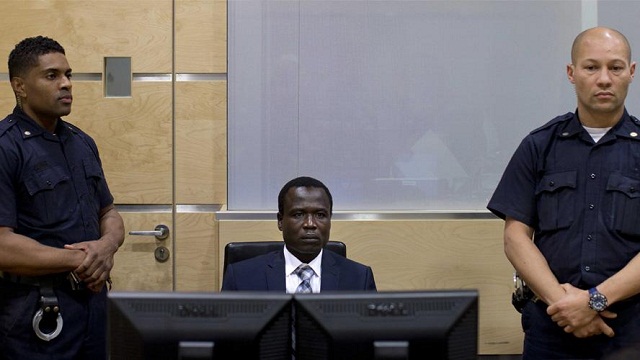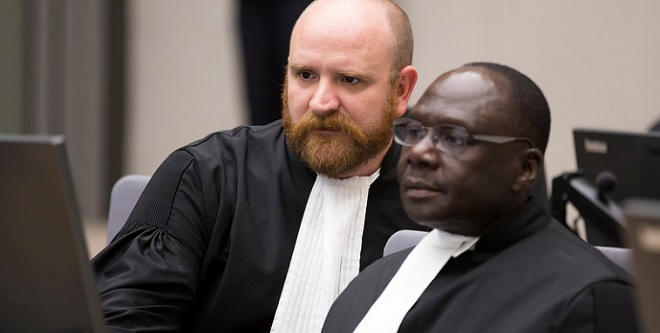
Trial to open of former child soldier turned LRA warlord
The Hague, Netherlands | AFP |
Dominic Ongwen, the former child soldier who became a Lord’s Resistance Army warlord, will go before war crimes judges on Tuesday in a trial which presents the International Criminal Court with its “most difficult dilemma”.
Ongwen, now in his early 40s, is the first former child soldier to go on trial at the tribunal, and is due to plead Tuesday to 70 counts of war crimes and crimes against humanity — the largest number of charges ever brought at the Hague-based ICC against one defendant.
But his own harrowing journey — abducted at the age of 10 and brutalised as a child by the LRA led by Joseph Kony before rising through the militia’s ranks to become its deputy commander — raises deep questions about how to prosecute such crimes. And the case is likely to set legal precedent.
Under the rule of Kony, a self-styled mystic and prophet who sought to impose his own version of the Ten Commandments, the LRA terrorised swathes of northern Uganda.
The UN says it slaughtered more than 100,000 people and abducted 60,000 children since it originated in 1987 and launched a bloody rebellion against Kampala.
Victims have recounted sadistic initiation rites for kidnapped youngsters forced to bite and batter friends and family to death. To drink their blood. Rituals Ongwen likely endured himself.
Despite his youth, this son of schoolteachers stood out for his loyalty and courage as well as his tactical mind.
Rape and enslavement
According to ICC prosecutors, when Ongwen became an adult he turned abuser, helping orchestrate the abduction and enslavement “of children under the age of 15 to participate actively in hostilities.”
He stands accused of rape, murder and “forced marriage” — the first such charge at the ICC — as well as the unprecedented legal charge of “forced pregnancy”.
While boys ended up in the ranks, girls were “treated as spoils of war” and turned into sex slaves.
Ongwen is said to have had at least seven wives — one was just 10 when she was first raped. DNA tests have revealed he fathered at least 11 children with different girls.
Prosecutors also allege that from 2002 to 2005, Ongwen “bears significant responsibility” for attacks in northern Uganda, “systematically” ordering the killings of civilians sheltering in four camps; Pajule, Odek, Lukodi and Abok.
Victims died in an orgy of violence, while survivors had their lips and ears cut off. In one case, a witness said Ongwen ordered his troops to cook and eat civilians.
Prosecutors intend to bring 74 witnesses including former child soldiers and some 5,800 pieces of evidence such as intercepted radio communications, videos and photos.
The defence is considering several arguments including that Ongwen suffers from post-traumatic stress disorder (PSTD) due to his life as a child soldier, one of his lawyers Thomas Obhof told AFP.
Ongwen also “lived permanently under the threat that his death was imminent,” Obhof added.

Victim or abuser?
That goes to the heart of the dilemma. Is Ongwen responsible for crimes he would likely never have committed if he hadn’t been a victim himself?
For ICC chief prosecutor Fatou Bensouda that question is for the judges to resolve.
“For my office, we decided to charge Dominic Ongwen for when he was an adult and still remained in the Lord’s Resistance Army, and allegedly continued to commit crimes,” she told AFP.
Toronto-based legal expert Mark Kersten says the moral issues will weigh on the court.
“How will the fact that Dominic Ongwen is at once a victim and a perpetrator influence his trial? That’s really the big question,” he told AFP.
“It’s the case at the ICC that poses the most stark and difficult dilemma… Ongwen could never have committed these crimes unless these crimes were perpetrated against him.”
But the international community cannot treat someone who remains part of this “rebel group for an additional 12 years as an adult and seeks to advance himself and perpetrates these crimes” in the same way as other victims, Kersten added.
Ongwen eventually turned himself in in January 2015, it is believed amid a bitter dispute with Kony.
Despite an international arrest warrant, and a US-led manhunt, Kony remains at large and is said to have just 150 followers hiding in the forests of the Central African Republic.
 The Independent Uganda: You get the Truth we Pay the Price
The Independent Uganda: You get the Truth we Pay the Price



